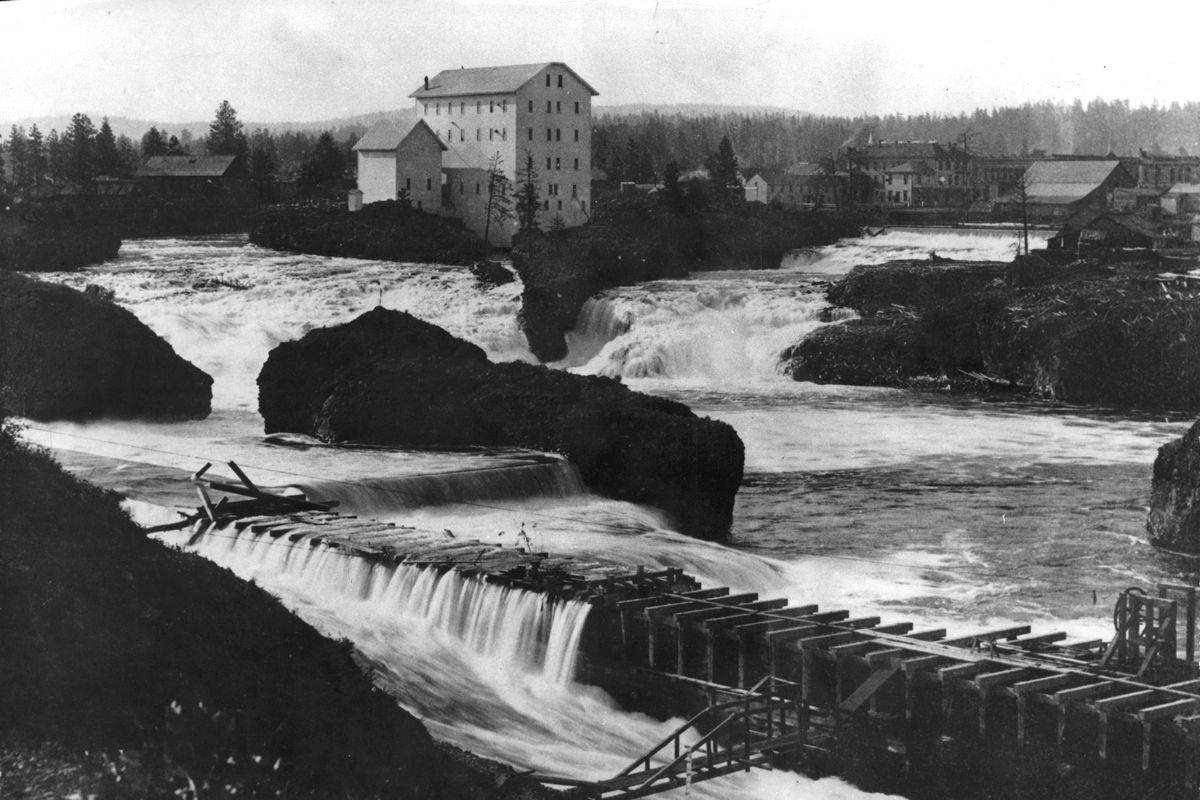Then and Now: Echo Roller Mill

Samuel G. Havermale, born in 1824 in Sharpsburg, Maryland, lived in Ohio and Illinois, where he studied for the ministry as a Methodist. He served as a pastor starting in 1852, then transferred to Walla Walla in the Washington Territory in 1873.
As a circuit-riding preacher, Havermale visited the tiny village of Spokane Falls on his way to Colville and fell in love with the place. Around 1875, Havermale made a government claim to a parcel of land in the center of the new town, which is now called Havermale Island, surrounded by channels of the Spokane River.
He helped build Spokane’s first Methodist church in 1879, then retired from the pulpit after six years covering many churches across Eastern Washington. He was 55 years old.
Around 1881, Havermale and partner George A. Davis began building what would be Spokane’s second flour mill, but only the first roller mill in Washington Territory. The city’s first mill, built by Frederick Post, used flat stones to grind the wheat into flour, a much slower process. The Echo Roller Mill, with a 14-foot water wheel to drive the steel rollers, began operations in November of 1883.
Havermale’s wooden mill was four-and-a-half stories and one of the tallest buildings around at the time. He added an oat mill and storage silos to the complex in 1887.
Havermale served on the first Spokane City Council.
Around 1888, Havermale sold his mill to Albert Keats and Benthan Bravinder.
By 1890, Havermale had retired to San Diego, California, and invested in real estate there. He died in 1904.
The giant mill survived the 1889 fire that destroyed downtown Spokane but burned down in 1892. Keats and Bravinder quickly rebuilt with brick and went back to work. But the milling business was becoming more competitive. By the 1920s, Echo was no longer the top mill in town.
When the Great Northern Railroad built their depot on Havermale Island in 1902, they had used eminent domain to take part of the Echo Mill property. The railroad eventually bought the whole mill and tore it down in 1927 for more room to realign their tracks.